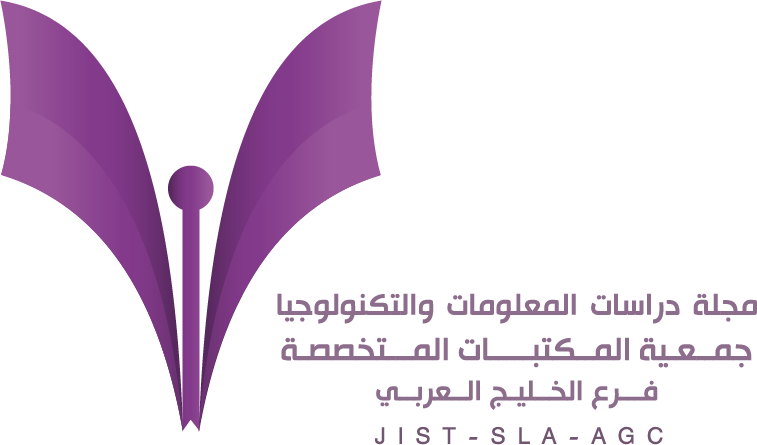-
oa منصة البيانات المفتوحة وتفعيلها عبر بوابات الحكومة الإلكترونية لدول مجلس التعاون الخليجي: دراسة مقارنة
- Source: Journal of Information Studies & Technology (JIS&T), Volume 2018, Issue 2, Jan 2019, 14
-
- 09 January 2019
Abstract
ملخص:
هدفت الدراسة إلى رصد وتحليل واقع إتاحة البيانات المفتوحة عبر بوابات الحكومة الإلكترونية لعينة من دول مجلس التعاون الخليجي ومقارنة مدى تفعيل البوابات الحكومية للبيانات الحكومية المفتوحة بينها والوقوف على الفوائد التي يمكن أن تعود على الجهات الحكومية والمواطنين نتيجة تبني ممارسات البيانات المفتوحة.
تم استخدام المنهج الوصفي بأسلوب تحليل المحتوى للتعرف على خصائص صفحات البيانات المفتوحة على البوابات كما استُخدم المنهج المقارن للمقارنة بين البوابات الحكومية للدول. ولأغراض جمع البيانات، تم استخدام قائمة المراجعة والملاحظة المباشرة لجمع البيانات.
ومن نتائج الدراسة حصول بوابة الإمارات على المركز الأول من حيث درجة الاكتمال بين بوابات دول المجلس المختارة، تلتها سلطنة عمان ثم البحرين فالسعودية في حين احتلت بوابة الكويت المركز الأخير من حيث درجة الاكتمال، إن إتاحة البوابات الحكومية الخليجية البيانات المفتوحة للمواطنين يعزز حقهم في المعرفة والحصول على المعلومات، واستخدامها، ومشاركتها. إن جميع بوابات البيانات الحكومية المفتوحة لدول المجلس تحتاج إلى مزيد من التطوير بدرجات متفاوتة حيث لا توجد بوابة كاملة؛ فكل بوابة تعاني من جوانب قصور مختلفة في عدد من المحاور.
ومن أبرز التوصيات أن تقوم البوابات الحكومية للبيانات المفتوحة في دول المجلس بحث المواطنين، والجهات الحكومية، والقطاع الخاص على استخدام البيانات المفتوحة ونشرها من خلال التعريف بها والتوعية بأهميتها وما تحققه من فوائد لجميع الأطراف عبر مواقعها المختلفة ومن خلال عقد الندوات وورش العمل، وأن تضع الحكومات استراتيجية واضحة ومعلنة للبيانات الحكومية المفتوحة، وأن تتيح البوابات الحكومية للبيانات المفتوحة جميع ملفاتها في صيغ مفتوحة يمكن معالجتها بواسطة جميع التطبيقات الحالية.
The study aimed to monitor and analyze the status of the availability of open data through the e-Government portals of the GCC countries and compare the activation of government portals for open government data between the GCC countries and the benefits that can accrue to government agencies and citizens as a result of adoption of open data practices.
The descriptive Methodology was used through the content analysis approach to identify the characteristics of the open data pages on the portals. In addition to the use of comparative approach to compare the government portals of the GCC countries. For the purposes of data collection, the checklist was used for the direct observation as data collection tools.
One of the important results of the study was that the UAE portal ranked first in terms of completeness among the GCC portals, followed by Sultanate of Oman, Bahrain and Saudi Arabia, while Kuwait portal was ranked last in terms of completeness. The availability of government portals to the open data of citizens enhances their right to know, access, use and share information. All portals need to be further developed to varying degrees where there is no ideal portal. Each portal suffers from various shortcomings in a number of Axles. The study concluded with a number of recommendations. The most important of those were the following: The government portals of open data in the GCC countries should encourage citizens, government agencies and the private sector on the use and dissemination of open data through awareness activities. Governments should develop a clear strategy for open government data in which to define the plans to be applied and to clarify the mechanisms by which their objectives will be achieved, allow all files in CSV open formats that can be processed by all existing applications.


